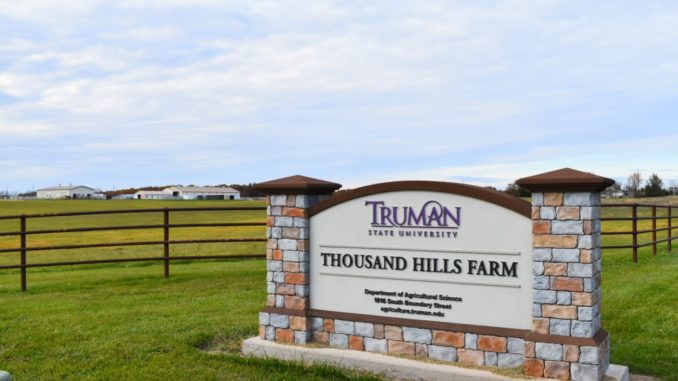
The Truman State University Farm had a worse growing season than usual, preventing the farm from providing its normal amount of food for the Kirksville community and Sodexo this season.
The University Farm produces an average of 5,000 pounds of produce each year, University Farm Manager Bill Kuntz said. This season, however, was not as successful as past seasons because growing conditions were not ideal because of the wet spring and early summer, Kuntz said.
Both Sheila Swafford, operations manager for the Pantry for Adair County, and John Stewart, Sodexo director of dining services, confirmed the lack of produce, especially sweet corn. Stewart said the University Farm only provided peppers and potatoes this year, as opposed to its usual high variety of vegetables.
Kuntz said the University Farm is mostly used for education purposes, such as teaching students about farming and its intricacies, but it also produces fruits and vegetables that are given back to the community.
Kirksville is the fourth most impoverished community in Missouri, with a large population of food insecure people. The Pantry for Adair County opened in July of last year with a mission to help the food insecure population of Kirksville by providing food for low-income households once a month, Lisa Ahrens, board president of the Pantry for Adair County, said. The pantry provided food for 425 residents in the month of October.
With the help of Kuntz, the pantry was given a plot of land at the University Farm to grow food for the local community at no cost, Ahrens said.
“This year, 2019, we had our first farm and Truman gave us the space to do that,” Ahrens said. “Bill was so helpful to help us, like some of the volunteers that don’t know a lot about gardening, he was like, ‘This is what you wanna do,’ so very helpful.”
The farm provides varying amounts of produce based on each season’s yield, Swafford said. She said a lot of the times she couldn’t weigh the produce because it was so heavy.
Most of the University Farm produce is sold to the Sodexo Farm to Table Program, providing students with fresh produce, Kuntz said. Stewart said produce from the University Farm is brought to the Student Union Building. The centralized salad department for Sodexo then prepares the produce, which is distributed to each dining hall on campus based on dining hall attendance.
“We probably got a couple thousand pounds of potatoes from the farm last year,” Stewart said. “We try to do as much local as we possibly can … we will purchase [local] produce because we are helping sustain the local farmers in our communities.”
Missouri Hall usually receives the most food because it’s a newly updated building with a high volume of students who eat there, Stewart said.
The produce sold to Sodexo is not only used in the dining halls but is also used for events because of the large volume of food from the farm.
“Last year when we had the Family Day Barbeque … the potatoes that were served that night all came from the University Farm,” Stewart said. “The yellow squash came from the University Farm, the onions and tomatoes that were on the table used for toppings were University Farm products.”
After produce has been sold to Sodexo for distribution among the dining halls, the University Farm gives all the extra produce to the Pantry for Adair County or other available nonprofits in town. In addition to the Pantry for Adair County, Kuntz said the University Farm has donated produce to the Salvation Army.
“We also have had a market on The Mall weekly in front of the SUB where we sell produce to anyone that is interested,” Kuntz said.
The farm usually grows potatoes, onions, tomatoes, peppers, cucumbers, corn, squash, melons, watermelons and a few other varieties of vegetables, Kuntz said.
Kuntz said they grow these varieties of produce because they do well in this area and are usually in high demand by Sodexo and other food banks in town. Despite this year bringing lower crop yields, the University Farm continues to provide what they have to the Kirksville and Truman communities.
